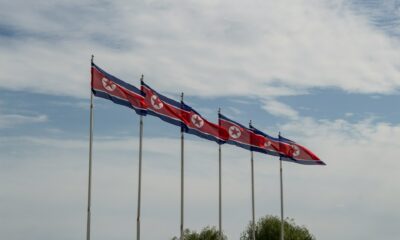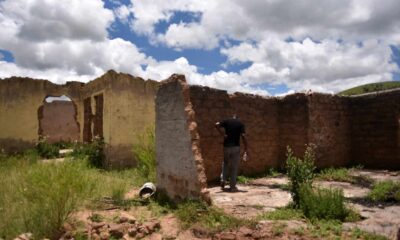Culture Craze
Ngizwe Mchunu Defies SAHRC: “I’d Rather Go to Jail Than Apologise”

When Pride Meets Principle
Radio and television personality Ngizwe Mchunu has reignited national debate after rejecting a directive from the South African Human Rights Commission (SAHRC) to apologise publicly for remarks deemed discriminatory against the LGBTQIA+ community.
Rather than complying, Mchunu declared that he would rather go to jail than issue an apology. His defiance has split public opinion and once again highlighted a recurring South African tension, the clash between cultural belief and constitutional rights.
The Controversial Comments
The uproar began after a same-sex wedding went viral earlier this year. One of the grooms was dressed in traditional Zulu attire, prompting Mchunu to release a series of online videos condemning the couple. In his posts, he used derogatory language and insisted that queer South Africans should not wear cultural regalia meant for heterosexual men. He even went as far as telling members of the LGBTQIA+ community to “leave South Africa.”
Mchunu did not stop there. He doubled down by addressing the SAHRC directly, saying, “You’ll find their apology in my grave.”
The SAHRC Responds
The SAHRC found Mchunu’s remarks to be a prima facie violation of equality laws under the Constitution. The Commission instructed him to remove the offensive content, publicly apologise within 24 hours, and refrain from sharing any further discriminatory statements.
Failing to comply could lead to the matter being escalated to the Equality Court, which has the power to impose fines, mandatory sensitivity training, or even imprisonment in severe cases.
The Backlash
Reactions have been fierce and divided. Human rights advocates and civil society organisations swiftly condemned Mchunu’s stance. Groups like TransHope and the Commission for Gender Equality called his comments “a grave violation of human rights” and urged the state to take decisive action.
However, some of Mchunu’s supporters argued that he was simply defending Zulu tradition, claiming cultural expression is under threat. Others countered that using “culture” to justify exclusion or insult goes against the spirit of the democratic Constitution that upholds equality for all.
NEWS: Ngizwe Mchunu insists that he will never apologize to the LGBTQI community as ordered.
He says he is prepared to stand alone on the matter and even go to jail when need be – KZN Tonight Podcast— Sihle Mavuso (@ZANewsFlash) October 13, 2025
A Deeper Divide
This confrontation isn’t new in South Africa. The country’s Constitution was the first in the world to outlaw discrimination based on sexual orientation, setting a global example for inclusion. Yet, the struggle between traditional norms and modern rights continues to play out in public life.
When public figures use culture as a shield for harmful rhetoric, it exposes how fragile the balance still is. For many queer South Africans, such moments serve as a painful reminder that legal protection doesn’t always translate to social acceptance.
Beyond the Apology
Mchunu’s refusal to apologise is more than a personal choice; it’s a cultural and legal flashpoint. It forces South Africans to ask hard questions about accountability and empathy. How do we respect tradition while ensuring it doesn’t harm others? When does freedom of expression turn into a violation of dignity?
The courts may decide what happens next, but for now, the conversation is unfolding where it matters most: in communities, workplaces, and online spaces where ordinary South Africans are rethinking what equality truly means in a country built on diversity.
Follow Joburg ETC on Facebook, Twitter, TikT
For more News in Johannesburg, visit joburgetc.com
Source: Bona Magazine
Featured Image: Mercury



























